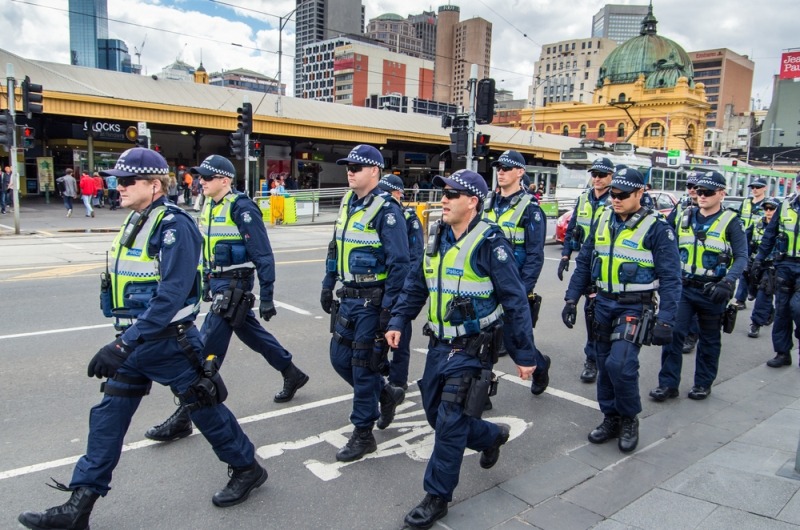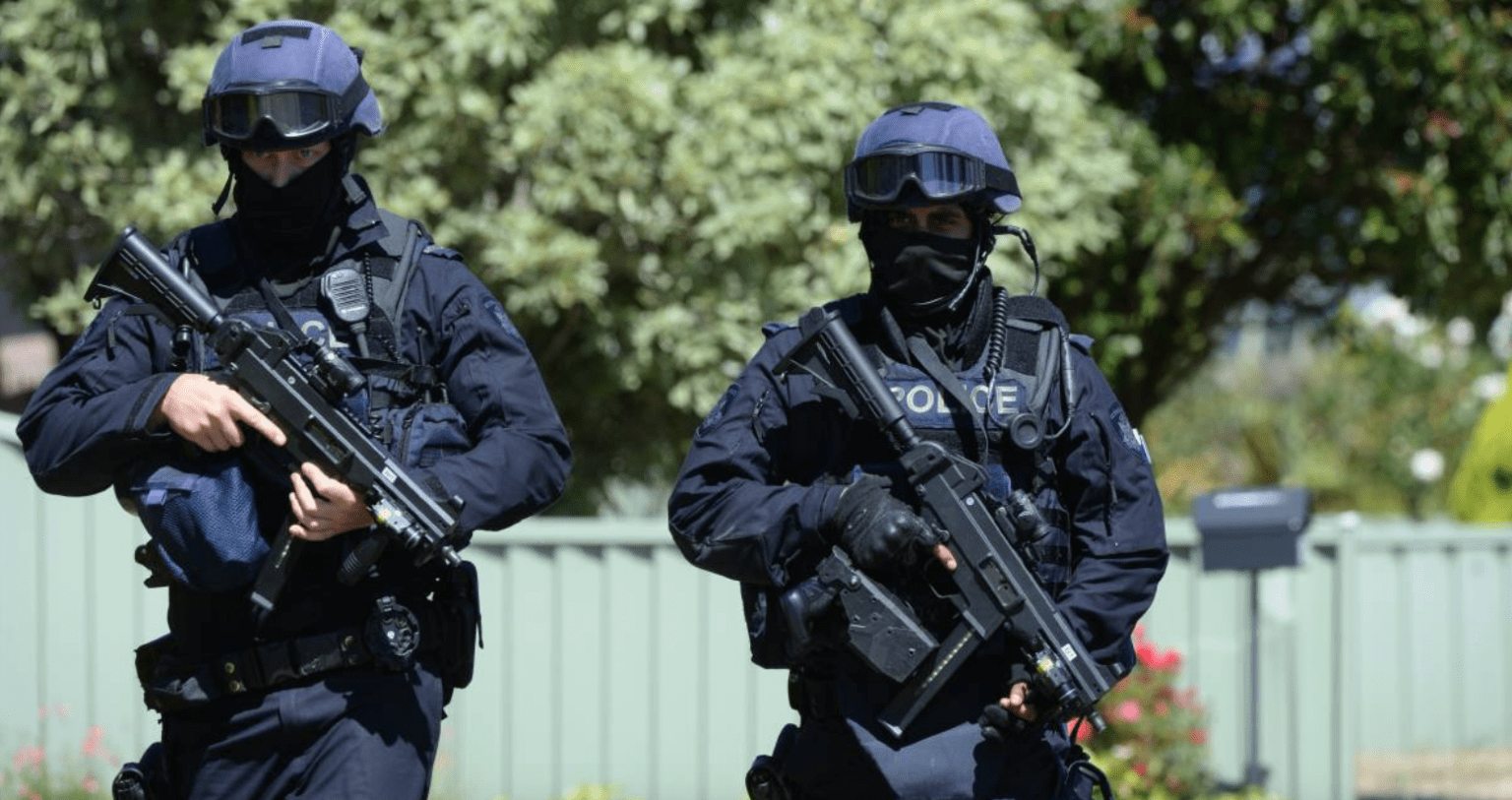What is Strong Cities Network? The privatisation of a Police Force governed by global NGO’s. And Victoria is the only state in Australia to sign on.
Why do you think the Police at Melbourne’s Freedom Day Rally acted like goons, were dressed in black and didn’t have the Australian logo on their uniforms?

SCN is an initiative of London based think tank ISD – whose mission statement is to “Power Solutions to Extremism and Polarisation”
But it’s the link to the Partners and Funders that gives everything away.
https://www.isdglobal.org/isdapproach/partnerships/
Of course, George Soros is involved with his Open Society Foundation. And Big Tech is involved with Facebook, Google, Twitter, and Microsoft amongst others.
Amongst NGO’s and Think Tanks, the dubious Brookings Institute sticks out – and I’m sure a deep dive into some of these would connect Bill & Melinda Gates and the Rockerfeller Foundations everywhere.
What struck me really odd are the connections to Australian Universities such as Curtin and Victoria Universities and various Australian government departments – including our very Dictator Dan.
So as you find out today that the curfews in Victoria are not based on the Chief Health Officer’s advice, and rather Dicktator Dan has put this in place, remember that he has sold us out to the military Police State of the New World Order.
*EDIT – Dicktator Dan even hosted the Strong Cities Global summit in 1998
https://strongcitiesnetwork.org/en/scn-regions/global-summit-2018/
33 Resilient Cities Announced by the Rockefeller Foundation.
Melbourne and Christchurch listed was selected cities.
Judith Rodin — President, The Rockefeller Foundation, 2005 – 2017 President Emerita, University of Pennsylvania
 https://www.rockefellerfoundation.org/wp-content/uploads/653e9cf3-f... 300w" alt="100 Resilient Cities - First 33" width="956" height="447" />
https://www.rockefellerfoundation.org/wp-content/uploads/653e9cf3-f... 300w" alt="100 Resilient Cities - First 33" width="956" height="447" />
Today, we are excited to name the first group of cities selected through the Rockefeller Foundation’s 100 Resilient Cities Centennial Challenge – cities who have demonstrated a dedicated commitment to building their own capacities to prepare for, withstand, and bounce back rapidly from shocks and stresses.
Since we announced the challenge on our 100th birthday, May 14, 2013, the response has been enormous, with more than 1,000 registrations and nearly 400 formal applications from cities around the world. Each city was asked to present a clear and compelling description of how they are approaching and planning for resilience to decrease vulnerabilities, and after careful review of the applications, a panel of esteemed judges, including former presidents Bill Clinton and Olosegun Obasanjo, recommended the first set of 33 cities for the 100 Resilient Cities Network.
It wasn’t easy to choose only 33 – we had so many passionate, vibrant entries. Among the winners: One of the oldest continuously inhabited cities in the world wrote of the city’s history withstanding shocks for the past eight millennia. One African city wrote of a resilience plan as harmonizing climate change adaptation, biodiversity, planning and management and water security. And a city in South America finds itself dealing with landslides and forest fires, all while sitting in the shadow of a volcano.
Africa
Dakar (Senegal)
Durban (South Africa)
Central and South America
Medellín (Colombia)
Porto-Alegre (Brazil)
Quito (Ecuador)
Rio de Janeiro (Brazil)
Europe
Bristol (UK)
Glasgow (UK)
Rome (Italy)
Rotterdam (Netherlands)
Vejle (DK)
Middle East
Ashkelon (Israel)
Byblos (Lebanon)
Ramallah (Palestine)
North America
Alameda (CA)
Berkeley (CA)
Boulder (CO)
El Paso (TX)
Jacksonville (FL)
Los Angeles (CA)
Mexico City (Mexico)
New Orleans (LA)
New York City (NY)
Norfolk (VA)
Oakland (CA)
San Francisco (CA)
Oceania
Christchurch (New Zealand)
Melbourne (Australia)
South Asia
Surat (India)
Southeast Asia
Bangkok (Thailand)
Da Nang (Vietnam)
Mandalay (Myanmar)
Semarang (Indonesia)
Cities selected for the Network will receive four kinds of support:
The support to hire and empower a Chief Resilience Officer, a central point of contact within each city to coordinate and oversee the resilience activities, coordinate stakeholders, and ensure resilience is a city-wide priority.
The support for that Chief Resilience Officer to develop a resilience plan, which will take stock of existing efforts, identify priority areas of needs, conduct analysis to understand the interconnected risks and opportunities, and develop a clear and actionable set of priorities and initiatives.
Access to a platform of services to support the implementation of such a strategy, which may include solutions to spur investments and financing for resilient infrastructure, information technology tools, and policy models for resilience-enabling laws and regulations.
Connection to other Network members, to share what works, spotlight success, and advance both global and regional dialogues on urban resilience.
Original source: https://www.rockefellerfoundation.org/blog/33-resilient-cities-anno...

You need to be a member of 12160 Social Network to add comments!
Join 12160 Social Network